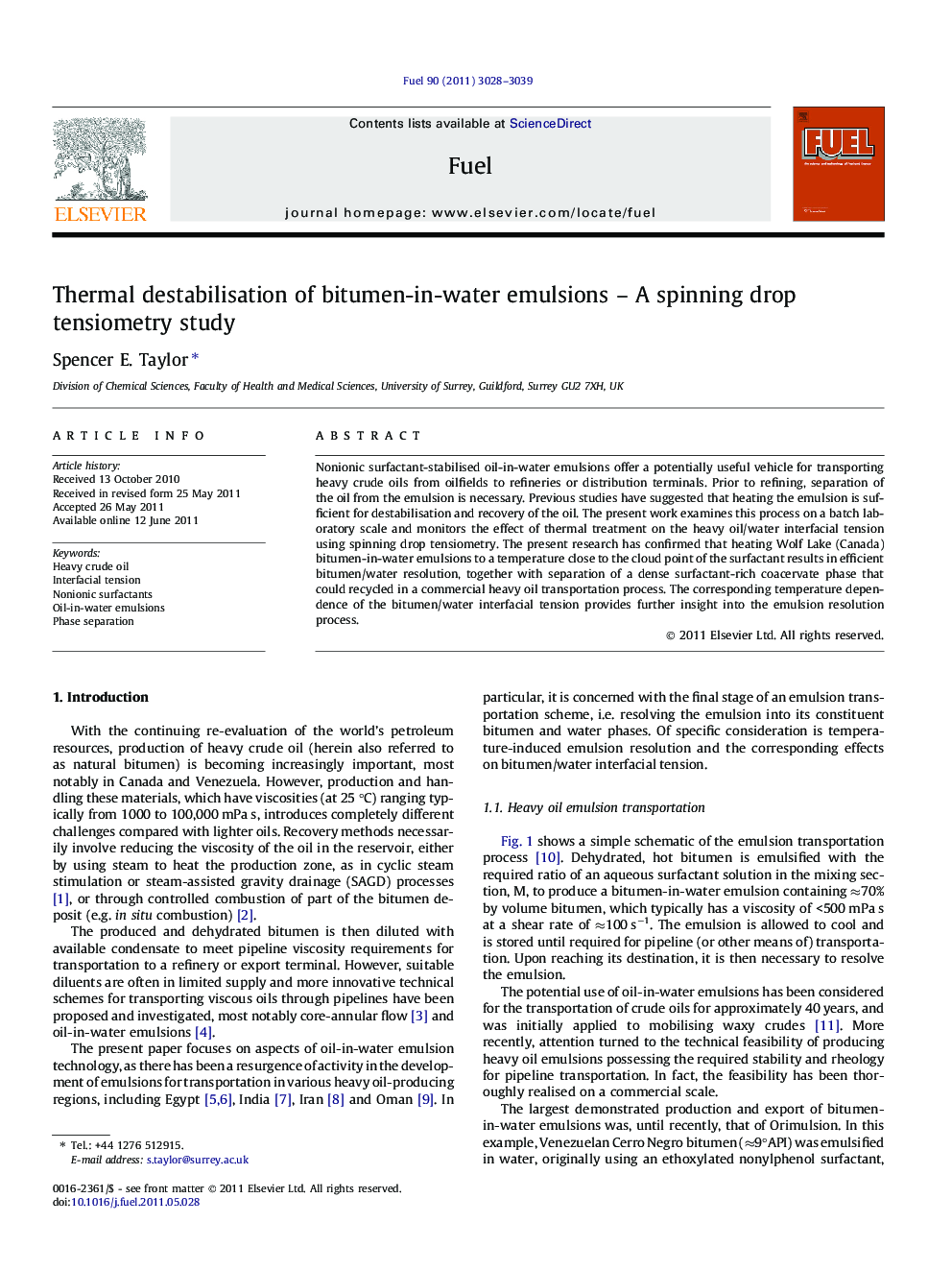| Article ID | Journal | Published Year | Pages | File Type |
|---|---|---|---|---|
| 206424 | Fuel | 2011 | 12 Pages |
Nonionic surfactant-stabilised oil-in-water emulsions offer a potentially useful vehicle for transporting heavy crude oils from oilfields to refineries or distribution terminals. Prior to refining, separation of the oil from the emulsion is necessary. Previous studies have suggested that heating the emulsion is sufficient for destabilisation and recovery of the oil. The present work examines this process on a batch laboratory scale and monitors the effect of thermal treatment on the heavy oil/water interfacial tension using spinning drop tensiometry. The present research has confirmed that heating Wolf Lake (Canada) bitumen-in-water emulsions to a temperature close to the cloud point of the surfactant results in efficient bitumen/water resolution, together with separation of a dense surfactant-rich coacervate phase that could recycled in a commercial heavy oil transportation process. The corresponding temperature dependence of the bitumen/water interfacial tension provides further insight into the emulsion resolution process.
► Oil/water emulsions are potentially useful for bitumen transportation from field to refinery. ► We studied thermal destabilisation of nonionic emulsions. ► Surfactant phase behaviour important – potential for recycling? ► Oil/water interfacial tensions determined.
